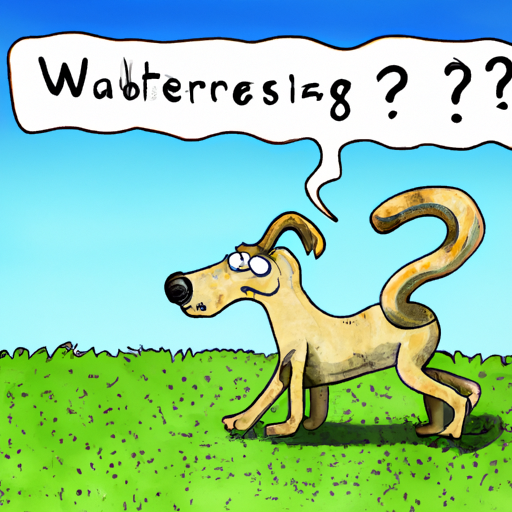Introduction
You’re relaxing on your living room couch, enjoying a quiet evening when suddenly, out of the corner of your eye, you see your dog scooting across the floor. It might make you chuckle, or you might be concerned. As a caregiver, you’re always alert to changes in your pet’s behavior. So, why exactly do dogs drag their butts on the ground?
1. Anal Gland Issues
First and foremost, a dog dragging its rear end across the floor could be a sign of anal gland issues. Anal glands, or anal sacs, are small, scent-filled glands located on either side of your dog’s rectum. They typically empty their contents when a dog defecates. However, if they become blocked or inflamed, they can cause discomfort, leading your dog to drag their butt on the ground to relieve the pressure.
Common Symptoms of Anal Gland Issues:
- Scooting or dragging the rear end across the floor
- Excessive licking or biting at the tail or rectum
- Swelling or redness around the rectum
Table 1.1: Anal Gland Issues
| Symptom | Possible Indications |
|---|---|
| Scooting | Blocked or inflamed anal glands |
| Excessive licking | Discomfort or infection |
| Swelling or redness | Inflammation or abscess |
2. Parasites
Another common reason for a dog dragging its butt on the ground is parasites. Internal parasites like worms, particularly tapeworms, can cause irritation around the rectum, leading your dog to scoot. Regularly deworming your dog can prevent such issues.
Signs of Parasitic Infestation:
- Visible worms or segments of worms in your dog’s feces
- Excessive butt dragging
- Weight loss, despite a good appetite
3. Allergies
Just like humans, dogs can also suffer from allergies. Certain food or environmental allergens can cause skin irritation, including around the rectal area. This could lead your dog to scoot or drag their butt on the ground to relieve itchiness or discomfort.
Common Allergens:
- Certain proteins (like beef or chicken)
- Grains (like corn or wheat)
- Environmental factors (like pollen or dust mites)
4. Infections or Injuries
Infections, injuries, or tumors near the tail or rectal area can also cause your dog to drag their butt on the ground. Tumors, cuts, or abscesses can cause discomfort or pain, leading your dog to scoot as a way to try and relieve it.
5. Behavioral Reasons
Sometimes, dogs might scoot for behavioral reasons. They might be trying to clean themselves after defecation, or they might be doing it to spread their scent, as a way to mark their territory. However, if your dog is scooting frequently, it’s best to rule out any medical reasons first.
Frequently Asked Questions (FAQs)
Q1: How can I prevent my dog from dragging its butt on the ground?
A1: Regular grooming, deworming, and a balanced diet can help prevent many of the issues that cause butt dragging.
Q2: Should I take my dog to the vet if it’s dragging its butt on the ground?
A2: Yes. While occasional scooting might not be a cause for concern, frequent or excessive butt dragging should be checked by a vet to rule out any medical issues.
Q3: Can I treat my dog’s anal gland issues at home?
A3: It’s not recommended to try and express your dog’s anal glands at home without proper training, as it can cause injury or further complications. A vet or professional groomer should do this.
Remember, as a caregiver, understanding your dog’s behavior and regular check-ups can go a long way in maintaining their overall health and happiness.



